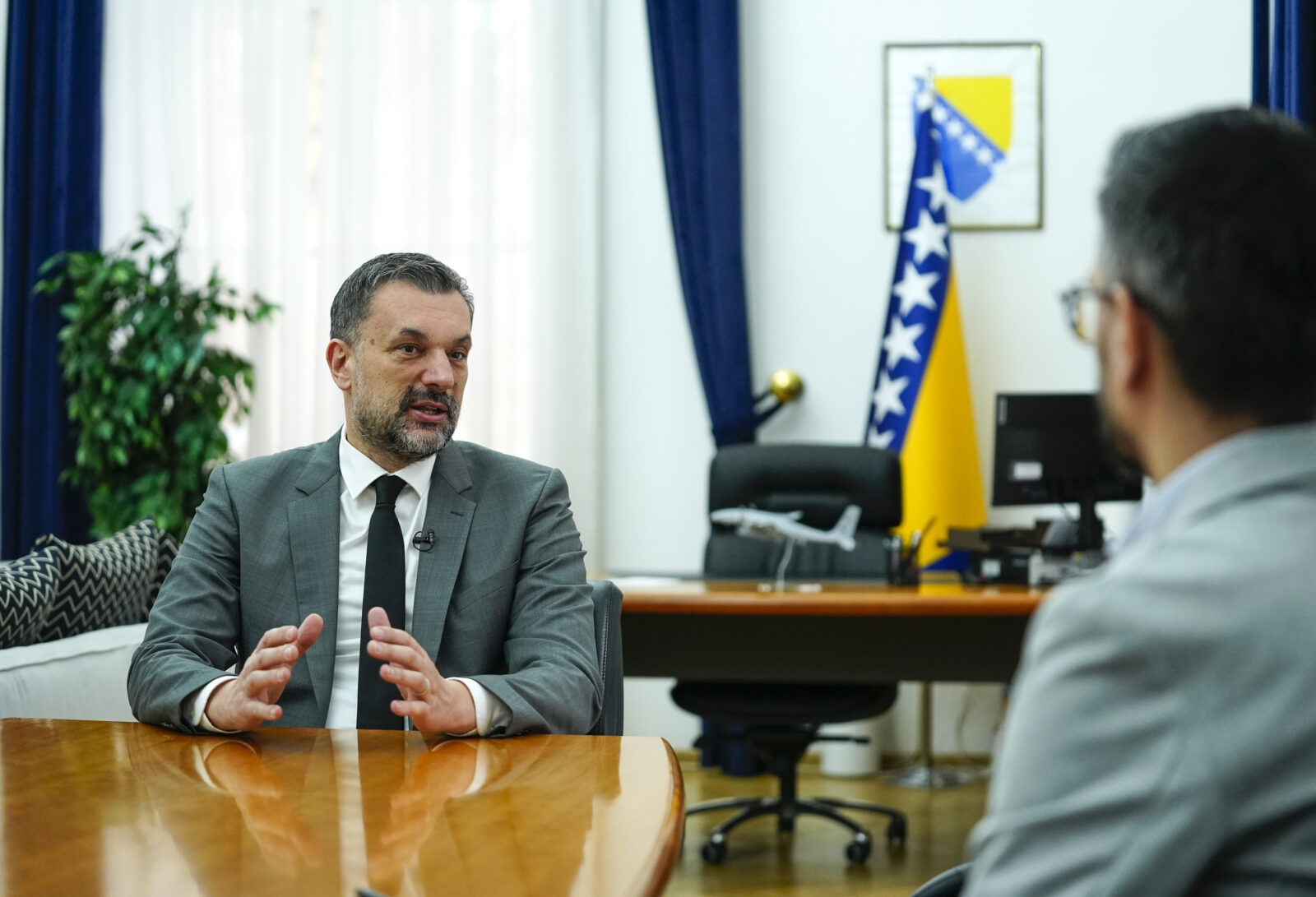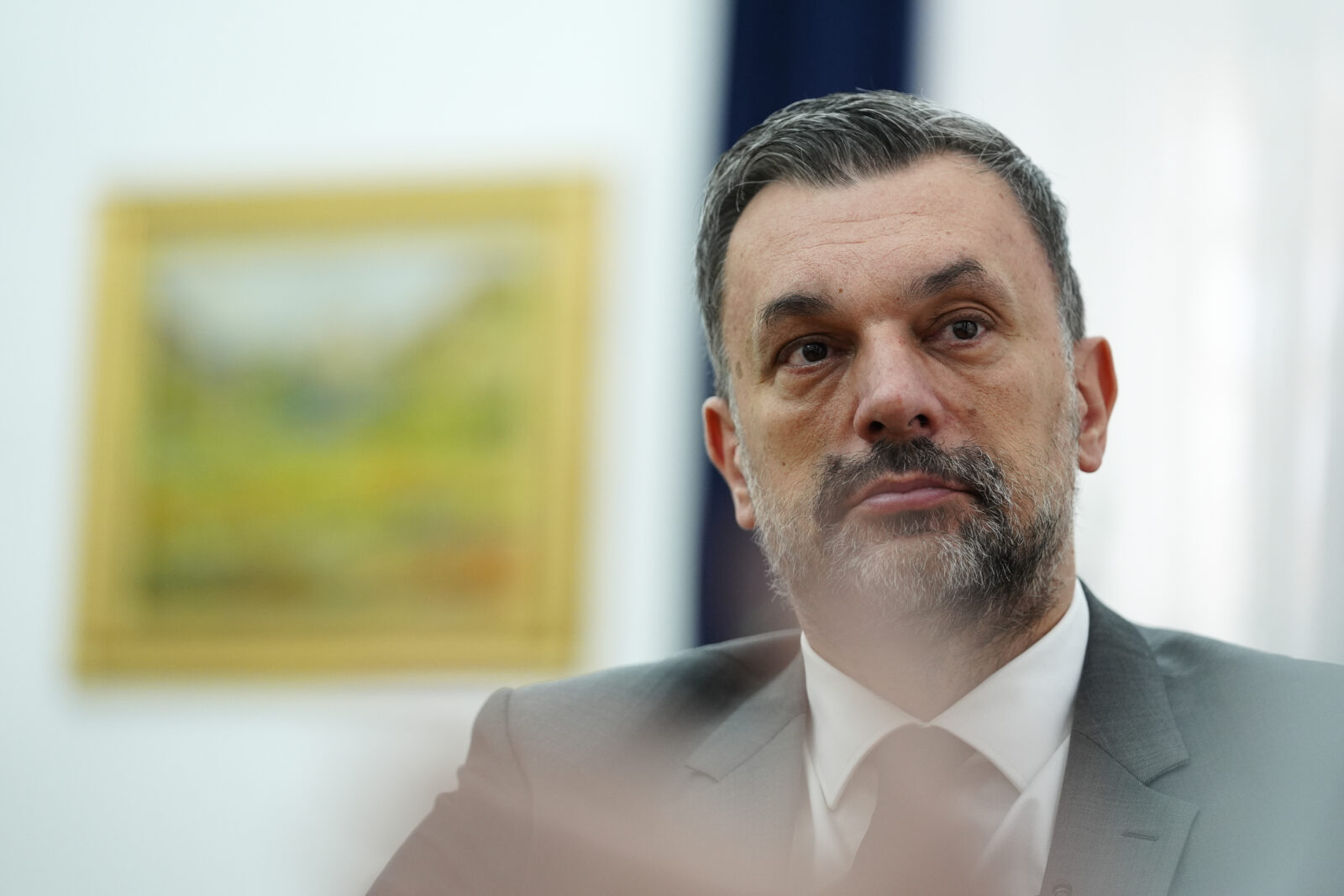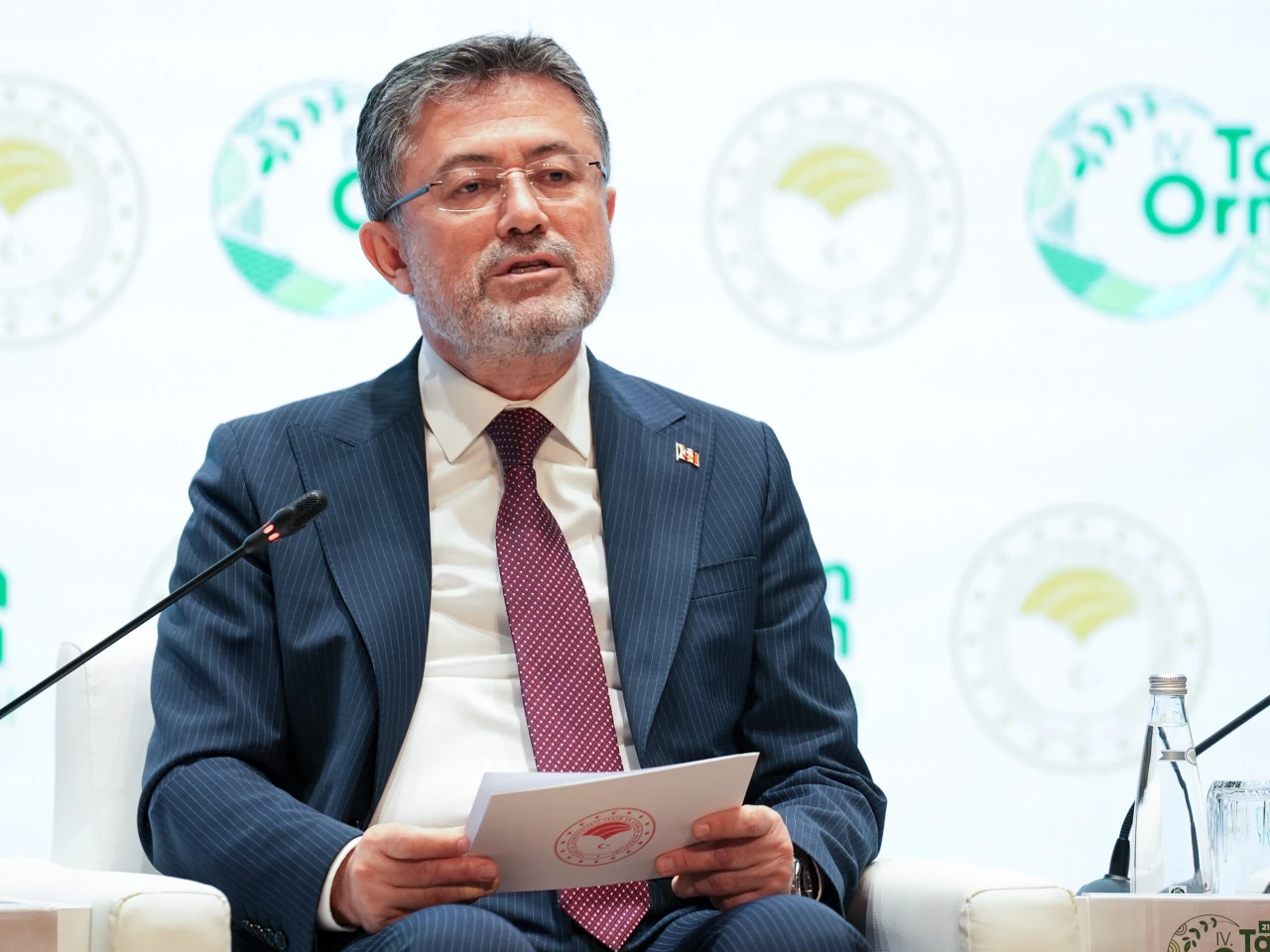Bosnia’s FM praises Türkiye’s Fidan, discusses regional, global issues
 Elmedin Konakovic, Minister of Foreign Affairs of Bosnia and Herzegovina (AA Photo
Elmedin Konakovic, Minister of Foreign Affairs of Bosnia and Herzegovina (AA Photo
Bosnia and Herzegovina’s Foreign Minister Elmedin Konakovic praised his Turkish counterpart Hakan Fidan, as “one of the best foreign ministers,” emphasizing a strong rapport between the two in his interview with Anadolu Agency.
He also discussed the future of Türkiye–Bosnia and Herzegovina relations, regional tensions in the Balkans, and crises in the Middle East.
Why it matters
Konakovic’s remarks reflect Bosnia and Herzegovina’s strategic partnership with Türkiye, especially in economic and diplomatic spheres. His comments on Serbia, Russian influence, and the ongoing conflicts in Gaza and Syria illustrate how Balkan affairs intertwine with broader global issues.

Details
- Focus on economy: Konakovic emphasized strengthening economic ties with Türkiye, noting productive relations with both Fidan and former Foreign Minister Mevlut Cavusoglu.
- Travel agreement: A mutual decision allowing travel with ID cards is pending implementation, delayed by Bosnia and Herzegovina’s complex post-Dayton structure.
- EU visa concerns: Despite potential EU pressure to reinstate visas for certain countries, Konakovic does not plan to impose such requirements on citizens of Türkiye.
- Regional stance: He criticized Serbian President Aleksandar Vucic for failing to acknowledge the Srebrenica genocide, calling him a “major problem” in the region.
- Russian influence: Konakovic claimed that Milorad Dodik and other Serb officials in Bosnia and Herzegovina act under Russian guidance.
- Middle East: He compared the conflict in Gaza to Bosnia and Herzegovina’s 1990s war and welcomed the ouster of Bashar al-Assad in Syria, noting widespread local support.

Zoom in
Konakovic’s close cooperation with Fidan indicates a desire to boost bilateral initiatives, particularly in economics and diplomacy. His willingness to seek Fidan’s advice underscores Türkiye’s regional importance.
Zoom out
From internal Serbian politics to volatile situations in Gaza and Syria, Konakovic’s comments reveal Bosnia and Herzegovina’s challenge in balancing complex international relationships. His approach to navigating ties with the EU, Russia, and neighboring countries underscores the multifaceted diplomacy at play in the Balkans.



